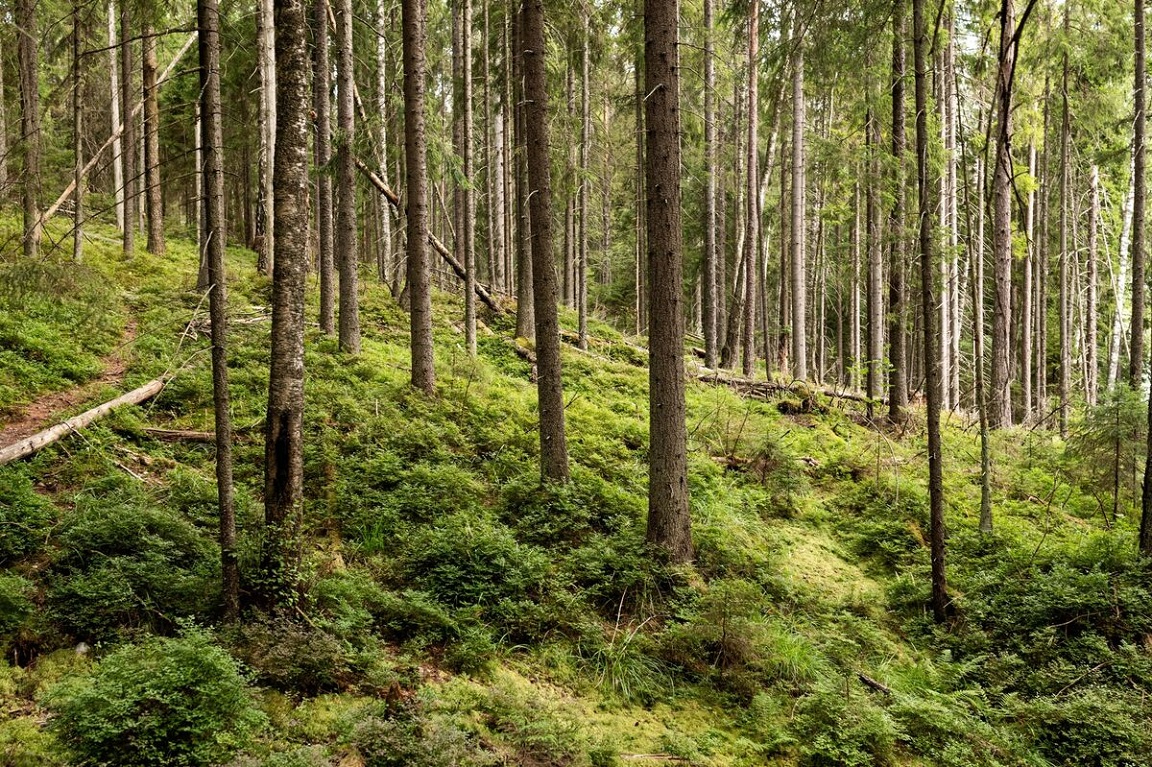11 Dec 2024

Tired Earth
By The Editorial Board

Europe’s law to restore nature is in the balance, following a vote in the European Parliament’s environment committee on Tuesday (27 June) that opened up the possibility for it to be definitely rejected by lawmakers during a whole Parliament vote in July.
The law, which aims at restoring Europe’s failing ecosystems, including forests, agricultural land and marine habitats, has faced fierce opposition from right-wing parties, particularly the European People’s Party.
Now it faces a vote to reject it in the Parliament’s July plenary, with no obvious majority to support it, but equally, no clear majority to vote it down.
“We continue with the law on European nature, with the procedures, the thing that the right-wing EPP have tried to block and prevent, with the complicity of other parties on the right,” said the lawmaker in charge of the file, socialist MEP César Luena.
“What happens now is down to dialogue and negotiation and that’s what I can do,” the Spanish MEP added, saying he is reaching out his hands, especially to the EPP, to discuss the law.
There is a huge need for restoring Europe’s ecosystems, with 81% of habitats in a poor or bad state. This risks causing biodiversity loss, rising carbon emissions and increased vulnerability to climate change.
For instance, Europe’s forests are in need of restoration to strengthen them against fires and other shocks caused by global warming as well as boosting their carbon capture potential and ability to shelter biodiversity.
All eyes on plenary
EU countries have already agreed their negotiating position on the law, meaning all eyes are on the July vote in the European Parliament’s plenary. Following Tuesday’s committee vote, this will consist of the rejection and, if this fails, amendments to the European Commission’s original proposal.
Whether the rejection succeeds or fails will likely depend on the centrist Renew Europe lawmakers and EPP dissenters. A right-wing bloc comprising the EPP, the European Conservatives and Reformists (ECR) and the far-right Identity and Democracy (ID) have said they will vote to reject it.
At the moment, the numbers are difficult to gauge as the environment committee was split on the law while other committees were outright against.
The EPP has been accused of preventing certain lawmakers from voting in the environment committee. Due to EPP substitutions, the group’s diversity was not reflected in the vote on Tuesday, said environment committee chair Pascal Canfin.
However, EPP lawmaker and environment committee coordinator Peter Liese pushed back on this.
“We had many substitutes, that’s true. The reason was that we wanted to be on the safe side,” he told journalists, saying this was in case a lawmaker had to drop out.
“There was no forcement. So we talked to colleagues and when they said we don’t feel comfortable, they asked for the replacement themselves,” said Liese, adding these lawmakers were not sure which way to vote.
‘Global embarrassment’ if rejected
While most agree on the need for restoration, the law has found itself in a political eddy with scientists, campaigners and businesses supporting it while others question its impact on food security and the livelihoods of farmers, foresters and fishers.
Those who support it also acknowledge these elements need to be addressed, but emphasise the law’s importance given the poor state of Europe’s nature.
“This law will help to guarantee food security. It will benefit farmers, fishers,” Luena told journalists, adding he had worked with the EPP on amendments to acknowledge these concerns before they walked out of negotiations.
There is now concern that a rejection in the European Parliament could not only jeopardise Europe’s nature but also mean the bloc falls short on its international commitment to restore 30% of degraded land and sea areas by 2030.
“If the Parliament cannot adopt this law, it may end up not only as a colossal EU failure, but even a global embarrassment,” said Guy Pe’er, a conservation and biodiversity scientist at the German Centre for Integrative Biodiversity Research.
Meanwhile, Noor Yafai, Europe director at The Nature Conservancy, said the vote was a blow for the EU’s climate change efforts.
“It symbolises a looming threat that the European Parliament’s international leadership on environmental issues, which grew tall and blossomed with the Green Deal, could now be about to wilt away,” she added.
She added it was concerning that the vote “has fallen victim to an audacious disinformation campaign” ignoring science, businesses and civil society calls to urgently restore nature in light of climate change impacts. These are already being felt, including in Europe’s forests, which have already seen huge fires and pest problems.
However, the EPP pushed back against accusations of “fake news” and calls from scientists to support the law, with lawmaker Christine Schneider saying people should look at the details of the proposal.
Critics welcome rejection
Meanwhile, the farming lobby group Copa-Cogeca welcomed the rejection, saying it sends a clear message to the European Commission to withdraw the proposal and present a realistic alternative.
“No farmer, no forester, no fisherman in Europe is against restoring nature,” wrote President of Copa Christiane Lambert in an open letter to lawmakers on Monday (26 June).
“Our criticisms focus on an initiative that is poorly constructed, has no coherent, clear or dedicated budget and has been the subject of remarkably unproductive consultations between the European Commission and those who will have to put it into practice on the ground,” Lambert added.
Speaking to journalists, the EPP’s Christine Schneider said the three parliamentary rejections cannot be ignored and called on the European Commission to withdraw its proposal.
Meanwhile, Aurélia Beigneux, a member of the far-right ID group from Rassemblement National told EURACTIV that the rejection sends “a strong signal to the left and center groups: people no longer want restrictive, unworkable measures!”
Source : euractiv.com
Comment